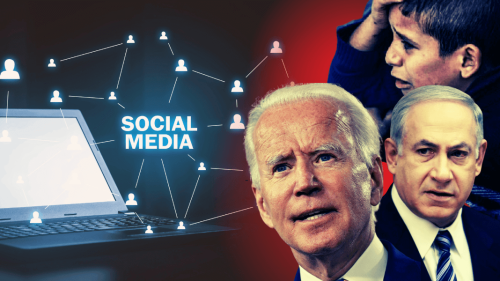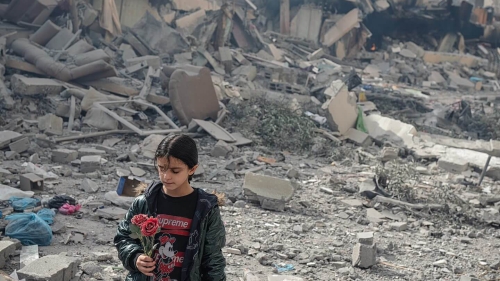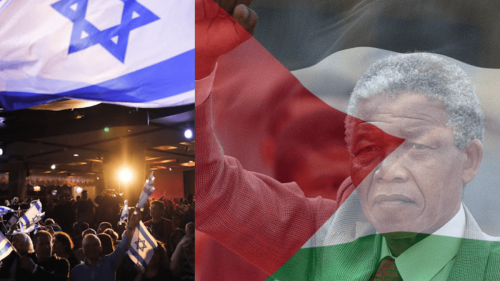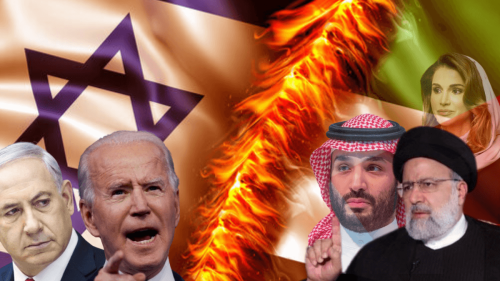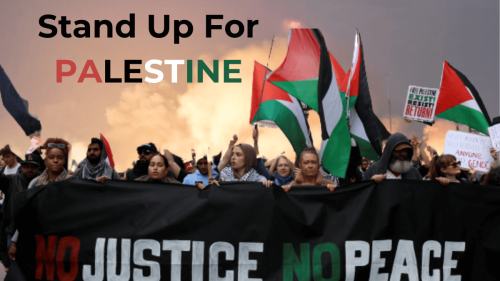Chasing Democracy in Tunisia
Tunisia's first multi-party presidential elections since 1956 brought a landslide victory and a third five-year term for President Zine al-Abidine Ben Ali. The October 24 election featured a concurrent parliamentary election that gives Ben Ali's Democratic Constitutional Rally (RCD) an 80 percent majority.
It appears that Tunisia's government, widely criticized for its humanitarian and undemocratic record, has changed little as a result of the elections. Ben Ali's most apparent gestures towards democracy since taking power in a 1987 bloodless coup seem little more than a facade to allay international criticism. But the election and the rhetoric that surrounded it could nonetheless have a positive effect on Tunisian democracy in the future.
The election featured six opposition parties and two presidential contenders besides Ben Ali. But all of the political parties are considered moderate and had to be first recognized by the government. And while a Tunisian law promises the opposition at least 20 percent of the parliamentary seats, the opposition as a whole cannot expect to compete in size and money with the RCD, which claims some two million members.
The two presidential contenders, Abdul Rahman al-Taleili of the Unionist Democratic Federation and Muhammad Balhaj Omar of the People's Unity Party, served largely as symbols of greater democracy in Tunisia. In an interview, Omar was concerned about "the absense of democratic debate," but said he had entered the race to at least help establish a tradition of multi-candidate elections, according to the BBC. Taleili likewise said he wanted to "contribute to the maturity of the democratic process," but that he was not running "against Ben Ali, but with him," as reported by the BBC.
Ben Ali's democratic charade is unlikely to fool international observers. Tunisia's president has often been accused of human rights violations and targeted for his efforts to hide a dictatorial regime behind the guise of democracy. The 1999 Amnesty International (AI) report on Tunisia accuses the government of imprisonment of political dissidents and human rights workers. When the Tunisian government launched a web site (www.amnesty-tunisia.org) detailing its respect for human rights and democracy, AI countered in a November 1998 report that the government was using "dirty tricks" to silence pro-democracy and human rights activists. The 1999 Human Rights Watch (HRW) report on Tunisia says, "Open political debate and opposition activity continued to be almost nonexistent, thanks to laws that criminalized various forms of speech and 'unlicensed' political activities, intensive police surveillance and harassment of citizens, and a press and judiciary that lacked independence."
Ben Ali's violation of democratic principals is perhaps most clearly seen in the government's persecution of Tunisia's Islamist elements. While the main Islamist party, the exiled Nahda movement, insists that it is moderate, committed to democracy and non-violent means, the Tunisian government has justified an ongoing crackdown on the grounds that the Islamists are all terrorists, according to the 1999 HRW report. Tunisia's web site devoted to defending its human rights record explains that it is necessary to stop the Islamists because theirs is a "dream capable of transforming a malleable segment of society into an explosive group of fanatics and terrorists." Human rights groups such as AI and HRW have rejected the campaign against the Islamists, reported to have resulted in the detainment of nearly 2000 prisoners of conscience. Exiled Tunisian opposition elements also resent the government's attack on the Islamists and a group of them staged a hunger strike in London during the recent election in order to protest the government's ban on Islamist candidates.
But there are indications that Sunday's election could be the basis for a democratic awakening in Tunisia. According to PANA, Ben Ali's recent election represents his third and final five-year term. And while the election was no doubt unfair, Ben Ali agreed on several measures that could help ensure fair elections in the future. The October 24 PANA report says the government agreed on mandatory, secluded polling stations, opposition representation at the counting of the ballots, a ban on gatherings in front of voting stations intended to pressure voters and a national observation group of independent supervisors. The BBC reports that posters of opposition candidates were seen and opposition parties were allotted television time, events previously unheard of in Tunisia.
And although Ben Ali's practice remains much more convincing than his rhetoric, he has at least recognized in speech the principals of human rights and respect for popular opinion. He is quoted by the pro-government web site as saying, "Human rights are universal values that can suffer no selectivity or exclusivity; specificity and authenticity may come into play only in the way their objectives are achieved and translated into reality."
Even if the recent elections were an insult to democracy, they did reinforce the principals of political and human rights in Tunisia. It is only a matter of time before popular sentiment, emboldened by the government rhetoric, steps up to claim what are now generally accepted as basic rights.
Zakariya Wright is a regular contributor to iviews.com








